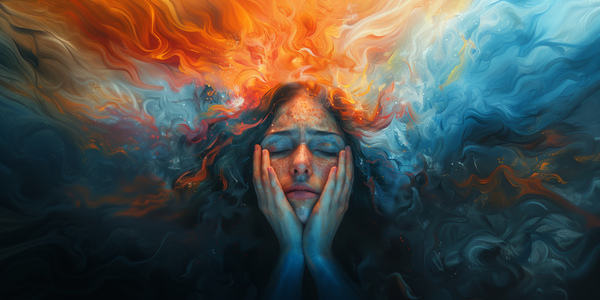Impulse Control Disorders: A Personal and In-Depth Perspective

Impulse control disorders are a group of psychological conditions that can deeply affect the lives of those who suffer from them. Through this article, I want to share not only detailed information about these disorders but also a personal perspective on how they can be managed and overcome. My hope is that this more personal and in-depth exploration provides clarity and support to those dealing with these challenges.
My Encounter with Impulse Control Disorders
The first time I encountered an impulse control disorder was when a close friend began exhibiting troubling behaviors. It started with small things like stealing insignificant objects and having disproportionate outbursts of anger. Over time, these actions began to seriously impact his personal and professional life. Watching someone I care about go through this prompted me to learn more about these disorders and find ways to help him.
What Are Impulse Control Disorders?
Impulse control disorders are characterized by the inability to resist the urge to perform acts that can be harmful to oneself or others. These acts provide temporary relief from tension but often result in significant negative consequences.
Types of Impulse Control Disorders
Through my research and personal experiences, I have found that there are several types of these disorders, each with its unique challenges:
- Pathological Gambling
- Description: An uncontrollable need to gamble that can lead to financial ruin and relationship problems.
- Personal Example: I knew someone whose gambling addiction not only emptied his bank account but also estranged him from his family and friends.
- Kleptomania
- Description: The irresistible urge to steal things that are not needed.
- Personal Example: My friend started by stealing small items from stores, which eventually led to legal troubles and public embarrassment.
- Pyromania
- Description: The compulsion to start fires.
- Personal Example: Although I haven't personally known someone with pyromania, I have read heartbreaking stories of people struggling with this destructive impulse.
- Intermittent Explosive Disorder
- Description: Episodes of disproportionate and explosive aggression.
- Personal Example: I have witnessed outbursts of anger in friends and family members that, although momentary, caused lasting damage to their relationships.
- Trichotillomania
- Description: The impulse to pull out one's own hair.
- Personal Example: A friend of mine struggled with this disorder, causing not only noticeable hair loss but also deep emotional distress.
Causes of Impulse Control Disorders
Through conversations with mental health professionals and my research, I have learned that the causes of these disorders can be complex and multifaceted:
- Genetic Factors:
- Explanation: There is evidence suggesting a genetic predisposition to developing these disorders.
- Personal Example: In my friend's case, there was a family history of impulse control problems, which might have influenced his behavior.
- Biological Factors:
- Explanation: Imbalances in neurotransmitters like serotonin and dopamine.
- Personal Example: Talking to a psychiatrist helped me understand how these imbalances can affect behavior and impulse control.
- Environmental Factors:
- Explanation: Traumatic experiences, chronic stress, and sociocultural factors.
- Personal Example: My friend's work-related stress and childhood trauma were clear triggers for his uncontrollable impulses.
Symptoms of Impulse Control Disorders
Recognizing the symptoms is the first step in addressing these disorders:
- Lack of Control:
- Personal Example: My friend described a feeling of helplessness when trying to resist his impulses.
- Feeling of Tension:
- Personal Example: Before a kleptomania episode, he felt a growing tension that was only relieved by stealing.
- Pleasure or Relief:
- Personal Example: Although the impulsive act provided temporary relief, this pleasure quickly faded, leaving feelings of guilt and shame.
- Negative Consequences:
- Personal Example: The consequences for my friend included legal issues, job loss, and damaged relationships.
Treatment of Impulse Control Disorders
Through seeking professional help for my friend, I learned about the various treatment options available:
- Cognitive Behavioral Therapy (CBT):
- Description: Helps individuals identify and change destructive thought and behavior patterns.
- Personal Example: My friend found relief working with a therapist who taught him techniques to manage his impulses.
- Medications:
- Description: Antidepressants, mood stabilizers, or antipsychotics may be prescribed.
- Personal Example: Under a psychiatrist's supervision, my friend took medications that helped balance his neurotransmitters.
- Group Therapy:
- Description: Provides social support and shared strategies.
- Personal Example: Participating in a support group gave my friend a sense of community and understanding.
- Family Education and Support:
- Description: Involving family in the treatment process.
- Personal Example: Educating his family about his disorder was crucial for creating a supportive and understanding environment.
Conclusion
Impulse control disorders are complex conditions that require a comprehensive approach to manage. My personal experience supporting a friend with this type of disorder has taught me the importance of understanding, patience, and professional support. If you or someone you know is dealing with these challenges, it's crucial to seek help and support to work toward a more balanced and healthy life.




